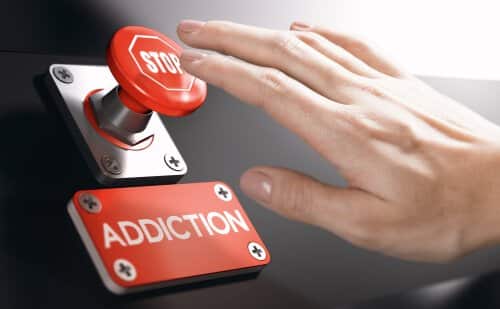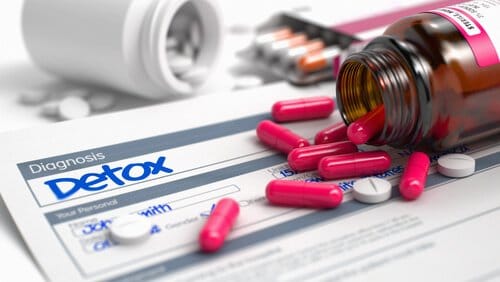Leading addiction expert, Dr. Cidambi, featured in Sun Herald.
Month: June 2016
The Press Democrat : Struggling with addiction
Santa Fe New Mexican : Drug abuse among seniors hard to detect
How to Choose the Right Drug Treatment Center in New Jersey
How to Choose the Right Drug Treatment Center in New Jersey

Drug treatment centers usually vary by philosophy, treatment type, and treatment duration.
Taking the time to do some research before choosing a treatment facility will help you find a facility that matches the patient’s needs, which, in turn, increases the likelihood of success.
When trying to identify the right treatment facility in New Jersey, the first thing to determine if inpatient treatment or outpatient treatment best fits the patient’s needs.
Residential or inpatient treatment and rehabs offer immersive treatment for alcohol and drug abuse where the patient stays at the facility 24×7.
Isolation from one’s living environment is needed when the home environment is unstable and not conducive to staying sober.
Going inpatient removes this unstable factor and helps the patient to focus on their recovery while they’re receiving care.
Going to an inpatient facility also makes sense when the patient suffers from a co-occurring medical condition that requires 24-hour medical monitoring.
Inpatient facilities usually have physicians or nurses available through the night, which makes monitoring medical conditions easier.
Usually, the length of stay in an inpatient facility is shorter, because it is much more expensive than outpatient treatment.
Addiction is a chronic disease, the longer the length of treatment, the better.
Also, all therapeutic treatment takes place in a bubble and when the patient returns home after completion of treatment, he or she has to apply all the learned concepts to daily life with no support from treatment providers.
Chances of succeeding are lower as compared to a situation where the patient has the opportunity to put learned concepts into practice while still in treatment (which can occur with outpatient treatment.)
Outpatient or ambulatory detoxification and addiction treatment are usually more suitable, as the home environment is relatively stable for most people and they suffer from no acute medical conditions that require 24-hour medical attention. Outpatient treatment offers multiple advantages:
Firstly, in an outpatient setting, treatment is integrated with the patient’s living environment making it more effective.
Therapy to treat addiction involves teaching coping and relapse prevention skills in order to help the patient stay sober in their home environment.
In outpatient treatment, the patient is able to go back home at the end of each day and practice the skills learned in treatment.
While some techniques may work, they will likely struggle with others.
The beauty of the outpatient treatment is that the patient can come back to treatment the next day and get help in areas of weakness.
Second, the length of stay is usually longer, which allows for better outcomes.
In the detoxification phase of treatment longer length of stay allows medication titration to be gentler and more individualized so that patients are physically at a much more comfortable spot relative to shorter inpatient detox.
Also, patients have longer access to their treatment providers as he or she apply concepts and skills learned in treatment in daily life.
If something is not working they can get counsel from their therapist and make adjustments when they go back to treatment the next day.
Effective addiction treatment centers offer outpatient drug treatment in NJ up to 90 days.
Third, family involvement in treatment is as easy as the treatment is provided locally.
Addiction is a disease that affects families. Oftentimes a person turns to drugs or alcohol because the family is dysfunctional or the addiction in a loved one has made the family dysfunctional. Either way, rapprochement or healing is needed to bring the family back together again. This elevates the level of support the patient receives at home.
Philosophical Differences
There are basically 2 philosophies in treatment. There is a small group of treatment facilities that believe in harm reduction. This means that they do not teach the patient to stay abstinent but to reduce drug or alcohol abuse to a minimum that will allow the patient to remain functional at their workplace and socially.
Most treatment providers, however, believe in total abstinence. This means that they strive to stop the use of any drugs or alcohol.
Levels of Care
Addiction treatment essentially has 4 levels of an acre; Detoxification, Partial Care, Intensive Outpatient (IOP) and Outpatient. Treatment facilities offer different levels of care or different combination of care. Facilities that offer the most continuum of care can provide a seamless treatment experience.
Detoxification is the most acute level of care, where negative physical consequences are possible and it is important to choose a nationally acclaimed addiction treatment expert.
Related Articles
4 Things You Should Consider When Choosing a Detox Center
BBC Sound Clip : The reasons for Prince’s death from Fentanyl overdose.
Chasing News : Heroin Under My Skin
Television station WWOR solicited addiction expert, Dr. Cidambi’s opinion on Probuphine, an implantable form of buprenorphine, recently approved by the FDA. Probuphine is recommended for maintenance treatment of dependence on opiates. It is to be used to address opiate cravings and opiate withdrawal.
Addiction to Prescription Drugs Could Be Fatal
Addiction to Prescription Drugs Could Be Fatal

When most people think of drug addiction, they usually think of illicit substances such as cocaine, heroin, flakka or other street drugs. What you may not be aware of is that addiction to prescription pain pills and other doctor-prescribed medications is the leading cause of overdose deaths in America. Prescription pain pills, for example, contains the same ingredient as heroin and it is easy to get addicted to them. Once addicted to a prescription medication, the individual may experiment with other legal or illegal drugs as the individual chases a higher high.
Many prescription medications are addictive, some more than others. When an individual gets addicted his/her brain’s reward pathways get rewired – these individuals’ brain will start waiting for the drug to trigger the release of large doses of dopamine, the chemical that drives feelings of pleasure, instead of releasing smaller quantities regularly. This leads to addiction, as, overtime, the body does not release dopamine unless stimulated by a drug causing the individual to constantly seek their drug-of-choice in order to get a “hit” of dopamine. As the individual’s body develops “tolerance” for the medication, more of the same medication, or combination of drugs will be needed to achieve the desired high. Eventually, the individual will have to take the drug just to feel “normal.”
Here are some of the prescription drugs that people are commonly addicted to.
Opioids
Prescription pain medications such as Oxycontin, Oxycodone, Percocet, Dailaudid, Hydromorphone, Fentanyl patches and others contain opiates. Opioids give off a euphoric effect, and are often prescribed for acute or chronic pain. Individuals, at first, use the medications to obtain relief from pain, but them get addicted and start misusing the medications. When consumed in higher than prescribed quantities, they can can be life-threatening, as they can lead to overdose. Opioids can also are combined with other prescription medication such as a benzodiazepine to obtain a higher high.
When misused the individual starts to neglect daily duties and is singularly focused on obtaining more prescriptions for the medication (usually by doctor shopping) and getting high. The abrupt cessation of opioid use can lead to severe withdrawal symptoms. Although not as dangerous as withdrawal from benzodiazepines, it can result in consumption of a higher dose of opioids that usual in order to obtain fast relief from withdrawal symptoms and lead to overdose. The only bright spot is that overdose from opioids can be revered by the administration of Narcan.
Benzodiazepines – Xanax, Klonopin or Valium
Benzodiazepines (and barbiturate) are usually used to treat anxiety. They are CNS (central nervous system) depressants.. They are also available as sedatives or hypnotics.
Improper use of benzodiazepines can lead to addiction and withdrawal can result is stopped abruptly. Withdrawal from benzodiazepines can be dangerous as it can lead to seizures, stroke or even death. Talk to one of the Detoxification experts in NJ to find out more about how to effectively rid oneself of this addiction.
Codeine
Codeine is usually prescribed to treat mild and moderate levels of pain. It is also used with other medications, such as a prescription quality cough syrup, to treat symptoms of the cold and flu. When taken in high doses, codeine with cough syrup will give off a calming, pleasing effect. It can also cause altered consciousness for the user. It is commonly the foundation for other concoctions of drugs, such as “purple drank”.
Related Articles
Best Strategies to Battle Opioid Addiction
How to Identify the Telltale Signs of Addiction in Your Kids?



